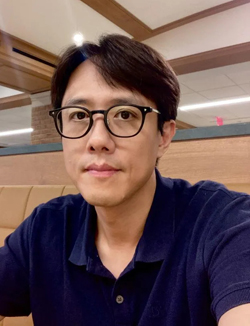From K-Pop to the Classroom: Wonseok Lee’s Journey in Defining Music and Culture
K-pop, short for Korean pop, continues to amass global fascination as it transcends cultural boundaries and blends diverse music genres worldwide. Wonseok Lee, a postdoctoral associate with the Council on East Asian Studies and Lecturer in Music, has brought an examination of the K-pop phenomenon to Yale.
Lee worked as a musician in the K-pop industry before migrating to the United States to complete his Ph.D. in musicology, with an emphasis on ethnomusicology, at Ohio State University. He worked with K-pop idols and groups, such as Lee Hyori, Shinwha, sg Wannabe, and BuskerBusker, among others. Despite possessing an inside view of the Korean music scene, he believes he lacked an understanding of the deeper cultural and sociocultural meanings of the genre.
“After I took several classes in my doctoral program, I learned that there are so many sociocultural factors that affect the emergence of musical genre,” said Lee. This realization prompted his further interest in ethnomusicology – the study of music as culture. Lee’s career in music served as a launch pad for his pivot into academia, and throughout this journey, he has been able to piece together his different experiences to enrich his understanding.
“K-pop has been a global phenomenon for more than two decades,” said Lee. “I would describe the global growth of K-pop as a term: expandability… K-pop, of course it started in South Korea as a popular music genre, but it has expanded its boundaries [ethnically, nationally, linguistically, and musically].”
Social media has fostered the globalization of K-pop, as fans leverage it to promote their favorite groups and artists and film K-pop cover dance videos and upload them to YouTube. These cover videos have grown in popularity -- especially for their dancing. Lee noted that “almost all universities in North America have student organizations that focus on K-pop cover dances. There are many K-pop cover dance groups organized by fans outside of Korea, which is one of the reasons for multiethnic K-pop. Talented K-pop fans participate in an audition to become K-pop idols, regardless of their ethnicity or nationality, and the industry has embraced them.”
“Doing field
Lee’s industry expertise supports his current research at the MacMillan Center and informs the curriculum for his Music In Flux class. “Every time I share my story with my students in the classroom… they are quite intrigued,” he said.
Within his class, Lee highlights how music is circulated and transmitted by various factors, such as colonialism, Diasporas, technology, globalization, even government cultural policy. He leverages a variety of techniques to encourage interactive learning, such as reading articles, listening to featured music, watching and analyzing music videos, and more. In implementing such methods, Lee challenges his students’ preconceived notions through intriguing examples.
Lee endeavors to convey the nature of music to his students. “I hope that my students can take away that music is never stable,” he said. “It’s always on the move ever since human beings started musical activities.” In exposing students to various types of music, Lee aims to help students understand that no musical genre exists in isolation: “Music and culture is always intertwined, they are inseparable.”
